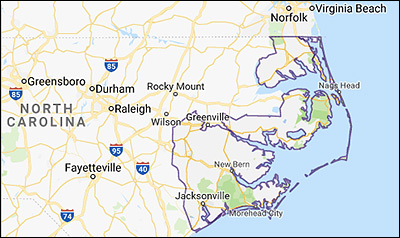
Wisconsin Rep. Sean Duffy (R-Wausau)
Oct. 4, 2019 — Earlier, it was reported that Wisconsin Gov. Tony Evers (D) is going to re-schedule the special election to replace resigned Congressman Sean Duffy (R-Wausau), and now we have more information.
At first glance, we see an instance where a state election law conflicts with a federal statute, which national government officials apparently brought to the governor’s attention after he made public the original voting schedule. Wisconsin special election law creates a 28-day period between special primary and general, while the federal MOVE Act, designed to provide some uniform structure for overseas and military voters stationed abroad, mandates at least 45 days be placed between elections.
The governor is reportedly looking at two scenarios, and both will move the special cycle to a much later time frame. Instead of Jan. 27, the original special general date (the special primary was slated for Dec. 30), the new general will likely either be concurrent with the April 7 presidential and statewide primary, or May 5. Due to the federal law requirements and the current state election calendar, the governor cannot schedule both the special primary and general to coincide with the already-set state election timetable.
Now for the politics: Wisconsin has a regular statewide election in the early part of the even-numbered year where judges and many local officials are elected in addition to other selected officeholder positions. In this particular April 7 election, the same day as the presidential primary, Republican state Supreme Court Judge Dan Kelly is running for a full 10-year term. Key Democratic leaders counseled the governor to schedule the election early so a large Republican turnout from a strong Republican congressional district did not hurt the party’s effort to unseat the high court judge.
On the other hand, Democratic turnout is likely to be very large on April 7 because voters are coming to participate in the presidential primary. Using this reasoning, the Democrats’ chances of upsetting the GOP in the special congressional election would be much greater even though the seat has performed well for the Republicans throughout this decade.


 In the two North Carolina special elections that were decided on Tuesday night, the winning Republican candidates exceeded the published polling projections. The same pattern also occurred in Pennsylvania back in late May when Rep. Fred Keller (R-Middleburg), while predicted to win comfortably, garnered a considerably larger vote percentage than projected when he scored a 68 percent special election victory.
In the two North Carolina special elections that were decided on Tuesday night, the winning Republican candidates exceeded the published polling projections. The same pattern also occurred in Pennsylvania back in late May when Rep. Fred Keller (R-Middleburg), while predicted to win comfortably, garnered a considerably larger vote percentage than projected when he scored a 68 percent special election victory.


